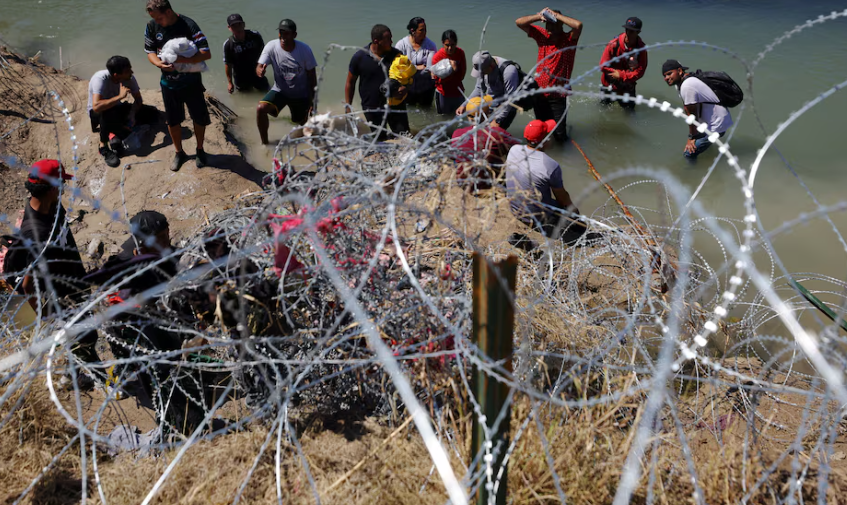As former President Donald Trump campaigns for a potential return to the White House, immigration policy has again become a focal point.
During a recent campaign rally and subsequent acceptance speech at the Republican National Convention, Trump vowed to implement “the largest deportation operation in the history of our country,” echoing his previous hardline stance on immigration.
This proposal, centered on mass deportations, has sparked widespread concern among legal experts, immigrant advocates, and community leaders.
Trump’s rhetoric has consistently highlighted incidents of violent crimes committed by undocumented immigrants, often sidelining discussions about the root causes of migration and the positive contributions immigrants make to American society.

Dylan Corbett, executive director of the Hope Border Institute, expressed alarm over Trump’s recent statements.
“His words aren’t empty. It’s not just rhetoric,” Corbett noted, stressing the potential for such language to stoke fear and anxiety among immigrant communities.
Corbett, based in El Paso, Texas, a border community deeply affected by immigration policies, highlighted the dangers of Trump’s proposed measures.
He pointed out that a significant portion of El Paso’s population consists of foreign-born residents, including many undocumented individuals and Dreamers—undocumented immigrants who arrived in the U.S. as children.
Corbett warned that a campaign of mass deportations could “rip us apart,” causing immense distress and instability for families and communities.
Trump’s plan would likely involve local law enforcement in enforcing federal immigration laws, a move that Corbett criticized as harmful to community trust and safety.
“Weaponizing peace officers against the migrant population makes the whole community less safe,” he argued, pointing out that such policies could lead to a “politics of exclusion.”
In California, similar concerns are echoed by Isaac Cuevas, director of Immigration and Public Affairs for the Archdiocese of Los Angeles.
Cuevas reported a rising anxiety among immigrants, many of whom are rushing to secure legal status before the upcoming election.
The archdiocese has been proactive in offering “Know Your Rights” seminars and citizenship workshops, but there is also a somber recognition that additional programs may be needed to support families affected by potential deportations.
The legal landscape surrounding immigration in the U.S. has long been contentious.
While recent administrations have focused heavily on enforcement and border security, there have been historical precedents for more inclusive policies.
The Immigration Reform and Control Act of 1986, signed by President Ronald Reagan, legalized millions of undocumented immigrants, setting a more compassionate tone that contrasts with current political rhetoric.
Anna Gallagher, executive director of the Catholic Legal Immigration Network (CLINIC), emphasized the importance of adhering to humanitarian values. “Mass deportations or family separation goes against our Catholic values,” Gallagher stated.
She highlighted the challenges faced by immigrants, noting the high demand for legal services among those seeking to regularize their status.
The potential human impact of Trump’s proposed policies is profound. Kevin Appleby, senior fellow for policy and communications at the Center for Migration Studies in New York, underscored the risks of family separations and the resulting trauma for children left without their parents.
He also pointed out the economic contributions of undocumented immigrants, who play a vital role in the U.S. labor market, pay taxes, and support social systems.
While Trump’s base may view immigrants as a threat, Appleby argued for a more balanced perspective that recognizes the value of incorporating undocumented immigrants into society.
“Legalizing many of the millions of undocumented immigrants and giving them a path to citizenship would be a constructive approach,” he said, contrasting this view with Trump’s more exclusionary proposals.
As the political discourse around immigration continues to evolve, it remains crucial to consider both the legal implications and the human costs of proposed policies.
The debate over Trump’s immigration plan underscores the need for a comprehensive and compassionate approach to one of the nation’s most pressing issues.

